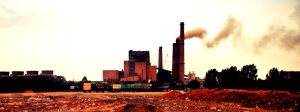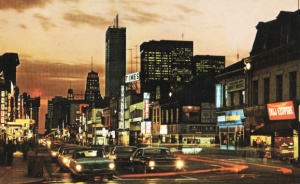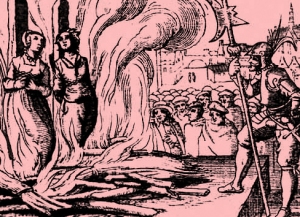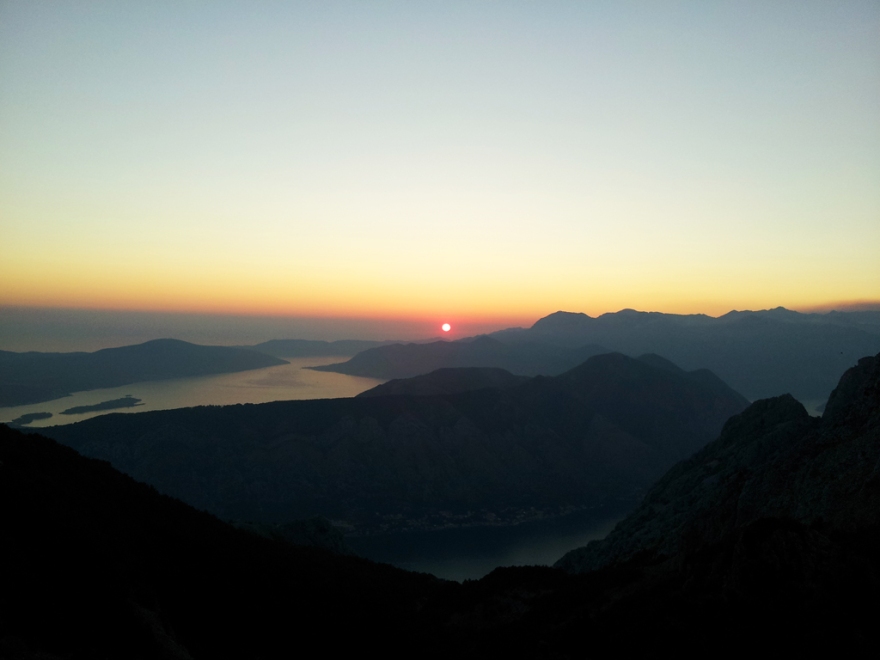I always enjoy it when Google News goes democratic and features, right below something from the BBC or New York Times, blog entries from the sort of sites that allege (in green Comic Sans) that the Queen of England is a reptilian shape-shifter.
Today’s example greeted me when I loaded the “Kosovo” section of my newsreader. Though (unfortunately) offering no paranormal speculations, Julia Gorin’s “Our Muslim Kosovo: Throw Mormons From The Stairs” column — published at a U.S. outfit called “Right Side News” (get it?) — was a treasure in its own right, as charmingly mid-2000s as a white studded belt.
Written from a “War on Terror” perspective for a U.S. Mormon/Evangelical audience, Gorin’s column connects a 2013 incident in which two Mormon missionaries were assaulted in Prishtina to the 2004 unrest, concluding that Kosovar Albanian “usurpers” (the country having been stolen at gunpoint, it is implied, from Orthodox Serbs) represent a terrifying new front in the global war between Muslims and Christians.
“Who’s sleeping less peacefully at night,” wonders the Right Side News columnist, “Kosovo’s Albanians? […] Or Kosovo’s non-Albanians, because the Albanians habitually set their houses, schools, and churches on fire?”
The absurd masks the malevolent. When Goya painted The Witches’ Sabbath in 1798, he did it to mock the fanatics who were escalating their Inquisition in his native Spain. Do they really, the grotesque, infant-sacrifice depicting work tempted one to ask, believe this shit? Lunatic religious inversions tempting peasant women to leave their beds at midnight (don’t forget your keys) and go consort with bloodthirsty goat-gods? The necessity of wars of faith?
I read these sorts of things about Libya, but I wasn’t there. I read them about Iraq, but I wasn’t there. I am in Kosovo, however, and remember the incident in question. It was a sad and squalid event, and it was reported as such. It did not reflect broad cultural trends, and was condemned whenever it was mentioned. It is difficult for outsiders to research the incident now, because it has entered the geo-folklore of sites like jihadwatch.com and creepingsharia.wordpress.com and been canonized as just another Islamic incursion on all that is good in Christendom.
Here’s the narrative: The war of 1999 was a shabby little sequel to the glorious struggles of Europe against Ottoman Islam. A corrupt cabal of traitorous world leaders allowed a chunk of Orthodox Europe to return to the nefarious Turks. There is no point wondering about the role played by the protests of 1981, or the push for the status of a Yugoslav republic during the 1970s, because this narrative has no room for those things. It has room for two things, two religions, and it derives its power from their constant war.
If these narratives weren’t appealing, they wouldn’t exist. The desire for an eternal and cosmic conflict is at the foundation of our greatest myths. God and the Devil, Ahura Mazda and Ahriman, He-Man and Skeletor. Unfortunately, life doesn’t always conform to this template, offering ambiguity where we wish for precision and isolated data-points where we want symbolic connections. It takes a great deal of rhetorical effort to crush the solitary incidents of one’s Google News feed into a satisfyingly mythic mold — but it can be done. It’s actually interesting how it’s done, which is why we have, using Ms. Gorin’s column as our reference, compiled this brief but serviceable style guide. This is how to employ fear, repulsion, and panic — all reliable and useful human qualities — so as to transform a bare-bones wire story into the stuff of legend.
1. Start Strong
The headline is the first point of entry for your reader and hopeful war-ally, so it needs to be nice and robust. You cannot equivocate; there is no room for words like “some,” “might” or “allegedly.” For this to work, the headline must be a story in and of itself. In the case of “Our Muslim Kosovo: Throw Mormons From The Stairs,” we find several potent narratives intertwined in the space of eight words. First, Kosovo is “ours” (why do we have that?); second, it’s Muslim (9/11!); third, they are apparently throwing Mormons down the stairs over there. That’s horrible. Why would anyone throw a person down the stairs? Someone could get hurt. In terms of concision, Right Side News’ headline approaches haiku. It’s a masterpiece.
2. Shadowy Saboteurs
We humans only have five senses, and they — especially when compared to those of our animal counterparts — can seem limited and inaccurate. We don’t always know everything that is going on around us, and this produces anxiety and unease. To further this sense of disquiet, it is useful to imply that the information you are getting is a special communiqué, or that shadowy and evil agents may have tried to prevent you from receiving it. In Ms. Gorin’s case, this effort takes the form of a warning that reports of the 2013 assault were “kept quiet and out of the news” for almost two weeks. But who would do such a thing? Who would conceal such an evil act for their own purposes? This question forms the essential clay from which one’s personal devil will be molded, so it is important that it be raised.
3. Everything Is Weird And People Are Lying
By now, you are entering the rabbit hole. You are aware that a bad and perplexing event has happened, and are becoming concerned that its truth is being warped by forces in the darkness. The next step, then, is to increase the reader’s suspicion that they were lied to. This undercuts one’s confidence, and furnishes the sense of lost-ness in which panic occurs. In Gorin’s piece, this sensation is provided by a dispute concerning the designator “Albanian”; essentially, she becomes upset that the original news report called the perpetrators of the assault “Albanians.” Calling the 600-year-old, used-in-this-region-forever term an “oh-so-controversial identifier,” Gorin wonders why they weren’t referred to as “former Yugoslavs,” “Kosovars,” or “people in Serbia.” This last option, of course, is a little much, and threatens to reveal her mythic structure as the simple war-bias that it is… but it’s effective. For a provincial U.S. audience, all of these terms will be foreign-seeming and confusing. Who are these people? What is an “Albanian”? What’s going on? Once you attach the confusion and fear outlined above to an actual group-signifier, you can move on to the creation of the next emotion: Disgust.
4. Give Details
Fear and unease are satisfying, but like so many primordial feelings, they have a nagging tendency to request climax. It is not enough to know that bad things are going on and that bad people are doing them — that’s too vague. On it’s own, fear will merely leave your reader feeling disoriented and purposeless. This is hardly the stuff of good soldiers. In this as in other titillating genres, you need the “money shot.” You need that point when unseen and powerful compulsions erupt suddenly into the physical world, and in this article it takes the form of a flashlight. The missionaries were beaten with flashlights. As climaxes go, it’s sort of disappointing — maybe even comical, after the fact. But isn’t that the case with so many climaxes? The important thing is, a hard object struck soft flesh and pain occurred. The direct impact is a proxy for the larger impact, like how an idol is a proxy for a god. These things can and will hurt people. The establishing of this point is crucial.
5. But That’s Not All
It would hurt to be hit with a flashlight, especially one of those big Mag-Lite ones. Those things are heavy. But whatever your choice of physical climax, it is important to remind your reader that the event depicted is actually the least of their worries. You are lucky if you only get hit by a flashlight, fortunate if you merely need your head shaved and stitched (the inclusion of this detail, derived from the medical treatment received by the assault victims, is genius: the shaving of womens’ heads is an ancient humiliation-tactic, and was used on women suspected of consorting with Nazis in occupied France. The older your symbols, the more power they will have). In this case, the mysterious “Albanians” who assaulted the missionaries were also arrested for planning a terrorist attack. Police (also Albanians, but including that detail detracts from the required dualism) found handguns, sniper rifles and explosives at the suspects’ houses. In a way, thank the Lord that it was only flashlights! These guys are up to way worse things than that. Something should really be done about them.
6. As Above, So Below
The quote “as above, so below” comes from alchemist lore, and refers to the idea that all things are connected, that very large things are reflected in very small things and vice versa. When creating your myth, don’t actually say it like that (it seems weird and esoteric and like the sort of thing most people aren’t involved with) but you need to mold your story’s conclusion to its contours. In “Our Muslim Kosovo: Throw Mormons From The Stairs,” the writer did this very successfully: Albanians, she reminds us, are Muslims (this, of course, is neither universally true nor any matter of policy or law, but she is telling a story here). Not only are they Muslims, but they are very, very big Muslims. Quoting a source who apparently requested that her name not be mentioned (good tactic), Gorin’s article states that “Kosovo is a Muslim country…religion is not just a faith for them — it is a culture”. If this sentence was ever actually spoken, anyone familiar with this area would probably conclude that it reflects the curious status of Islam in Kosovo, how it often serves as a cultural touchstone or component of Albanian identity rather than an observed-to-the-letter creed. Gorin’s column is not for people familiar with this area, though, and to them it would reflect the idea that these “Albanians” are some of the most whole-heartedly Muslim of all Muslims and that everything one might normally associate with Muslims (almost all bad things, for this audience) is doubly true in terms of these “Albanians.”
Thus the mythic circle is completed and the devil revealed: Kosovo is ultra-Muslim, is Muslim in the worst way, and everybody is trying to hide this from you. Where you were once full of confusion and unease, you are now full of martial certainty: Let’s do something. Let’s solve this problem. Let’s get up and fight. Unlike the murky, suspicious emotions that surround disquiet and fear, the ones surrounding actual violence are brisk and satisfying. There is an enemy. The enemy has tried to hide itself and confound us, but we have seen through its charades. We know who and what it is, and now there is only one thing to do.
In the best stories, and for the worst audiences, there is always only one thing to do. Are not our favorite stories the life-like ones? Shouldn’t stories behave in the way that lives do?
Shouldn’t they end?
(This post originally appeared at kosovotwopointzero.com)
Tagged: Kosovo, Media, Politics, Pop Culture












 Last Friday, a remarkable thing happened in Pristina. I mean that in the original sense, of course: a thing worthy of remark, or perhaps created solely to prompt remark, occurred here, and now everybody is talking about it.
Last Friday, a remarkable thing happened in Pristina. I mean that in the original sense, of course: a thing worthy of remark, or perhaps created solely to prompt remark, occurred here, and now everybody is talking about it.

















